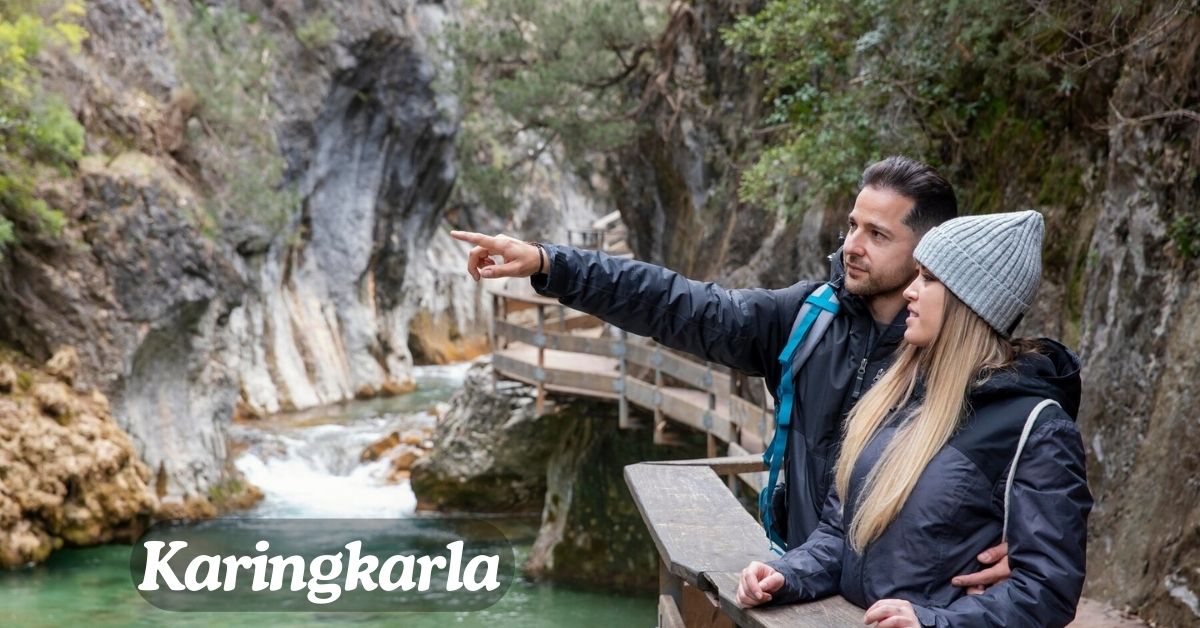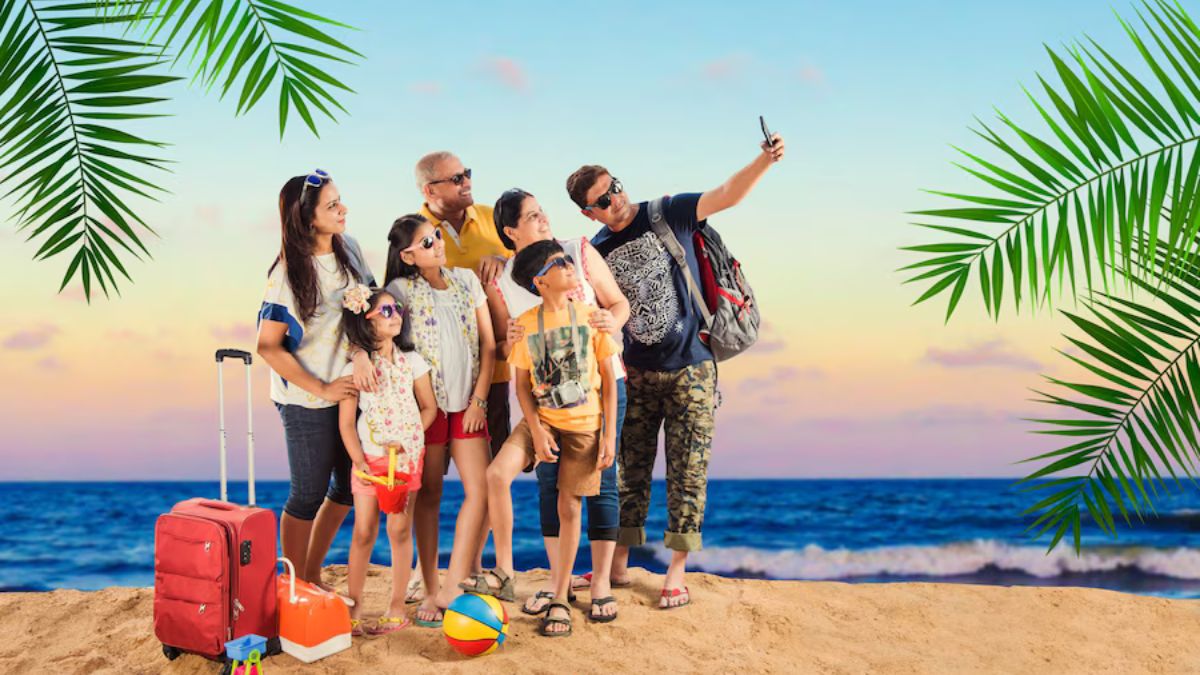Welcome to the world of Karingkarla, where travel meets healing and cultural immersion takes on a whole new meaning. In this blog post, we will delve into the fascinating origins and powerful benefits of Karingkarla practices from around the globe. Get ready to discover how embracing these traditions can transform your travels and enrich your soul in ways you never imagined!
The history and origins of Karingkarla
Karingkarla, a term rooted in ancient healing traditions, traces its origins back to indigenous cultures across the globe. The concept of Karingkarla embodies the belief that connecting with nature and immersing oneself in diverse cultural practices can unlock profound healing benefits for the mind, body, and soul.
Throughout history, various communities have passed down the wisdom of Karingkarla through rituals, ceremonies, and storytelling. These traditions have been preserved over generations as a way to foster resilience, harmony, and well-being among individuals and communities facing various challenges.
From the Aboriginal peoples of Australia to the Native Americans of North America and beyond, Karingkarla has served as a guiding principle for living in balance with the natural world. By honoring these ancient teachings and embracing their significance in today’s modern society, we can tap into a source of wisdom that transcends time and borders.
YOU MIGHT ALSO LIKE: Exploring the Fascinating World of Mamgatoto
The healing benefits of travel and cultural immersion
Embarking on a journey to explore new cultures and traditions can have profound healing effects on the mind, body, and soul. Traveling allows us to break free from our daily routines and immerse ourselves in unfamiliar environments, opening up new perspectives and opportunities for personal growth.
Cultural immersion enables us to step outside of our comfort zones, challenging preconceived notions and fostering greater empathy and understanding for others. By connecting with local communities and participating in traditional practices, we can gain valuable insights into different ways of life and deepen our appreciation for diversity.
The act of travel itself can be therapeutic, offering a sense of liberation from stressors back home. Whether it’s breathing in the fresh mountain air or feeling the warm sand between your toes on a beach, being present in new surroundings has a rejuvenating effect on both the body and mind.
Through meaningful interactions with locals, trying exotic foods, or partaking in ancient rituals, travelers can tap into centuries-old wisdom that offers holistic healing benefits. Embracing cultural immersion as a form of therapy not only enriches our own lives but also contributes to the preservation of indigenous traditions worldwide.
Exploring the traditional practices of Karingkarla in different countries
Embarking on a journey to explore the traditional practices of Karingkarla in different countries reveals a world rich in cultural diversity and healing traditions. From the vibrant markets of Morocco to the serene temples of Japan, each destination offers a unique perspective on holistic wellness.
In India, Ayurveda reigns supreme, with its emphasis on balancing mind, body, and spirit through herbal remedies and meditation. And In Peru, shamanic rituals connect individuals with nature’s energy for spiritual cleansing and growth. In Australia, Indigenous healers share their deep connection to the land through ancient ceremonies that honor ancestral wisdom.
By immersing ourselves in these diverse practices, we gain not only physical benefits but also a deeper understanding of our interconnectedness with the world around us. Travel becomes more than just sightseeing; it becomes a transformative experience that nourishes our soul and expands our horizons.
Personal stories and experiences with Karingkarla
I remember my first encounter with Karingkarla vividly. It was during a trip to Australia, where I had the opportunity to participate in an Aboriginal healing ceremony. The elders shared their wisdom and performed rituals that connected us to the land and its energy.
The experience was profound; it felt like a spiritual awakening. I could feel the ancient traditions of Karingkarla seeping into my soul, bringing me peace and clarity. As we danced around the fire under the starlit sky, I knew that this moment would stay with me forever.
Since then, I’ve made it a point to seek out similar experiences wherever my travels take me. Whether it’s learning about traditional healing practices in Japan or immersing myself in indigenous cultures in South America, each encounter with Karingkarla has left me feeling more connected to the world around me.
These personal stories and experiences have shaped not only my travels but also my outlook on life. Through Karingkarla, I’ve learned the importance of respecting different cultures and embracing their healing traditions as a way to nurture both body and soul.
How to incorporate Karingkarla into your own travels
When planning your next trip, consider incorporating Karingkarla into your travel experience. Start by researching the local healing traditions of the destination you’re visiting. Look for opportunities to participate in cultural ceremonies or activities that promote well-being and connection with nature.
Engage with locals to learn more about their traditional practices related to healing and spiritual growth. Take part in workshops or classes that focus on mindfulness, meditation, or holistic treatments offered by indigenous communities.
Immerse yourself in the natural surroundings of your chosen destination. Spend time outdoors connecting with the land, whether it’s through hiking, swimming in natural bodies of water, or simply sitting quietly and observing the beauty around you.
Keep an open mind and be willing to step outside your comfort zone to fully embrace the teachings of Karingkarla during your travels. Remember that true transformation often occurs when we are humble enough to learn from different cultures and ways of life.
The impact of cultural preservation through tourism
Cultural preservation through tourism plays a crucial role in safeguarding traditions and heritage. When travelers engage with local customs, they contribute to the sustainability of cultural practices. By supporting authentic experiences, tourists help communities maintain their identity amidst modernization.
Tourism also provides economic incentives for preserving cultural sites and traditions. When visitors invest in local products or participate in traditional activities, they directly support the continuation of these practices. This symbiotic relationship between tourists and locals fosters mutual respect and understanding.
Furthermore, exposure to diverse cultures fosters empathy and appreciation for global differences. Through travel, individuals gain new perspectives on the importance of preserving heritage worldwide. By valuing and promoting cultural preservation through tourism, we can ensure that rich traditions are passed down to future generations.
Conclusion: Embracing the power of Karingkarla for
As we journey through the world, exploring different cultures and traditions, we open ourselves up to the transformative power of Karingkarla. This ancient practice reminds us of the interconnectedness between nature, community, and self. By embracing Karingkarla in our travels, we not only enrich our own experiences. But also contribute to the preservation of diverse cultural heritage.
Through immersing ourselves in local customs and rituals, we gain a deeper understanding of the values and beliefs that shape a society. Each interaction becomes an opportunity for growth and connection beyond borders. By integrating Karingkarla into our journeys, we create lasting memories that transcend time and space.
As travelers seeking enrichment and enlightenment, let us continue to honor the wisdom of traditional healing practices like Karingkarla. Let us carry forth this legacy with respect, gratitude, and an open heart as we embark on new adventures around the globe.
FAQS
1. How can I find opportunities to engage in Karingkarla practices during my travels?
Research local traditions and customs before your trip, connect with indigenous communities or local guides. And participate in cultural activities such as storytelling, traditional ceremonies, or nature walks.
2. Can anyone benefit from the healing power of Karingkarla?
Yes! The transformative effects of connecting with nature, culture, and community are universal. Everyone can experience personal growth and healing through embracing different traditions.
3. What if I’m new to traveling or cultural immersion?
Start by being open-minded and respectful towards unfamiliar cultures. Take small steps like trying new foods, learning basic phrases in the local language. Or joining a guided tour that focuses on indigenous practices.
4. How can I support cultural preservation while traveling?
Choose sustainable tourism operators that prioritize respect for local communities and their heritage. Purchase authentic crafts directly from artisans, attend educational workshops on traditional practices, and advocate for responsible travel initiatives.





